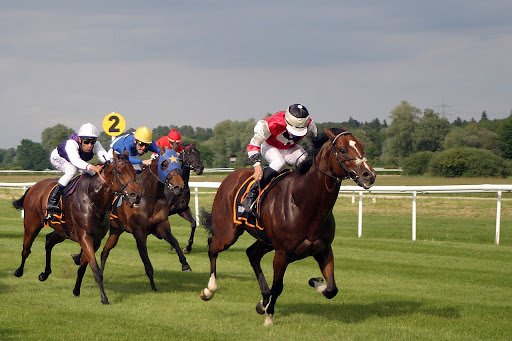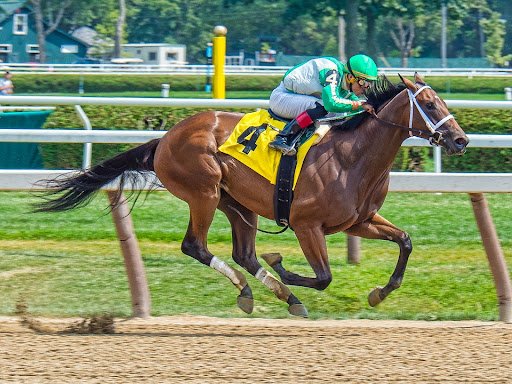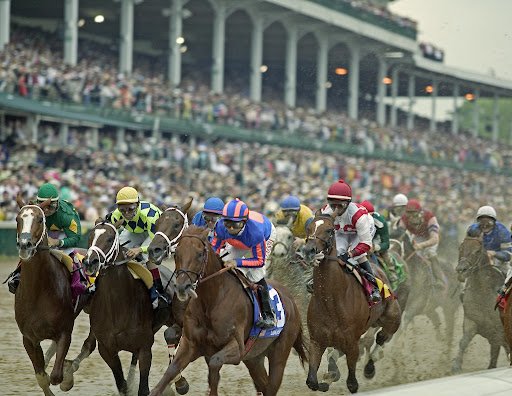
Human cultures are diverse. Each one is unique and yet all seem to have similar touchstones. Sports is one such human invention that seems to connect disparate cultures. Since ancient times sports have delighted spectators around the globe. Sports are not only limited to human interaction. Many different branches and disciplines involve animals. Horses are among the most common companions of human sports, being present in the majority of non-violent sports involving animals. Horse racing, in particular, is one of the most popular disciplines involving these noble and majestic animals. The perfect analogy of the link between man and animal, both jockey and horse work in tandem to establish themselves as the best of the best.
Many horse racing fans dream of being able to ride like the wind and face off with their equine companion against other racers, yet few of them know of the requirements needed to become a professional jockey. Today dear readers, let’s take a look at the most important aspects that are evaluated before becoming a professional jockey.
Size Matters
A concept that is easily forgotten by many but plays an extremely important role in the world of horse racing is the size of the jockey. Weight is the main factor that comes into play when we talk about size being important. As logic would tell us, less weight on the horse means less stress to be able to run and higher speed. However, too little weight can outbalance the jockey, and risks falling from the horse. In extreme situations a lighter jockey is unable to properly use their weight to control their mount. On average, a jockey should weigh between 108 and 118 lbs or 49 to 54 Kg.
Height is also an important factor, although not as crucial. Jockey’s height range goes from 142 cm to 170 cm on average. They tend to be on the shorter end of the scale due to weight limitations. Also, a smaller jockey creates less wind resistance, making the horse tire slower and run faster. Some races establish limitations on maximum weight on a horse, an example being the Kentucky Derby and the Tampa Bay Derby, which set maximum weight including equipment at 57 Kg or 126 lbs.
Wisdom Is Power

While it may seem obvious, the first thing to do when trying to become a jockey is learning how to ride a horse. Professional horse riding is not meant for everyone, as it is not only getting up on the horse and speeding away. Remember that jockeys usually weigh between 49 to 54 Kg. That means that a high-speed running machine weighing up to 600 Kg has to be handled and controlled by a human that weighs nine times less. That is the reason why professional horse racing is not something that can be done without training. Even the most experienced jockey can get outmaneuvered by their horses. Many factors can’t be completely controlled by the jockey and results can be serious or even fatal accidents. Being a professional jockey is considered a high-risk job, and as such, carefully learning how to ride means a lot both to your success and your safety.
Bond and Connection

While the physical requirements are extremely important, another factor that contributes to success as a jockey is your ability to bond and understand your horse. Establishing a connection, being able to understand one another and respond to each other is the true mark of a professional jockey. One of the most famous examples of this is the history of Ron Turcotte and the legendary Secretariat. “Big Red” as he was affectionately referred to by his owner Penny Chenery, is known as the greatest racehorse in history. Yet at the beginning of Secretariat’s career, misunderstandings between jockey and horse would hamper his performance. Ron Turcotte first rode Secretariat in 1972 as a replacement jockey. From that moment the duet was formed. Secretariat and Ron understood each other perfectly, with the jockey commenting on Secretariat’s love for continuously speeding up on cue. Ron would say that ” he (Secretariat) knew what to do and when to do it.” Ron would go on to become Secretariat’s official jockey, becoming legends in horse racing history.
More To Know
Our space on this list falls short, yet more needs to be said. The world of horse racing is vast and requires more than just what we discussed. Treat this article as a basis from which to begin your own adventure into professional horse racing as a career, and let your own curiosity guide you on your search for knowledge.


![Fountain of Youth Stakes Predictions, Odds & Entries [2026]](https://ultimatecapper.com/wp-content/uploads/2017/06/gulfstream-park1-2.jpg)
![Rebel Stakes Predictions, Odds & Entries [2026]](https://ultimatecapper.com/wp-content/uploads/2018/02/oaklawn-park1-2.jpg)
![Gotham Stakes Predictions, Odds & Entries [2026]](https://ultimatecapper.com/wp-content/uploads/2017/12/aqueduct1-2.jpg)